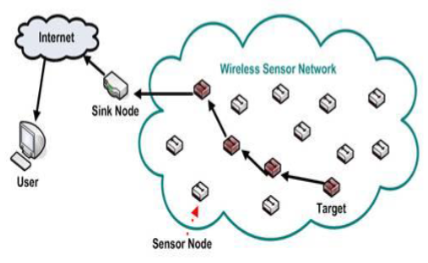Design Simulation and Perfomance Analysis of Efficient Low Energy Adaptive Clustering Hierarchy Protocol in Wireless Sensor Network
Main Article Content
Abstract
Network life has been defined by the use of nodes to store, process and distribute information, which have restricted energy usage. In other words, all aspects of the node must be designed for extremely energy-efficient applications from sensor module to hardware and protocol. Diminished energy consumption by a factor of two will increase the system's overall utility by doubling the device life. In addition, the protocols should be robust against node failures, tolerant of defects and scalable to optimise device life to minimise energy dissipation. LEACH is the first protocol for network networks that utilises hierarchical routing to enhance network life. All nodes in a network are grouped into local cluster groups, with the cluster head being one node. Although all non-cluster head nodes transmit their data to the cluster head, the cluster head node collects data from all the cluster members, conducts data signal processing (e.g. , data aggregation) functions and transmits data to the remote baseline. As a cluster-head node, it thus takes much more resources than a non-cluster-head node. So all nodes that belong to the cluster lose communication power if a cluster-head node dies. In this research, we introduced clustering as a means of overcoming this energy efficiency problem. Detailed description on the process of LEACH protocols is available. The information on the simulation and the findings have also been discussed.
Article Details

This work is licensed under a Creative Commons Attribution-NoDerivatives 4.0 International License.

